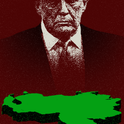
When establishment used to work, parliament was actively involved in Church affairs. Legislation was informed by Christian morality, and ordinary people had a say via their elected parliamentary representatives.
This relationship was gradually dismantled throughout the 20th century, with grisly consequences. The Church has drifted towards self-righteous clerical irrelevance, and its membership has plummeted—only 1.5 per cent of the population now attend church on an average Sunday and only 12 per cent of infants are baptised.
The most important step in disestablishment was replacing the steadying hand of parliament with the General Synod in 1970. This strange instrument of self-governance makes no pretence of representing ordinary Anglicans. Two-thirds of its members are clergy and the rest are lay people who enjoy long meetings with clergy. It serves as a grandstanding platform for the Church’s most extreme and unattractive elements.
Gordon Brown’s contribution to disestablishment was to end parliamentary involvement in the appointment of senior clergy. The quality of bishops plummeted. Gone are the days of interesting bishops like Robert Runcie, David Jenkins and Richard Harries who had a vision for the whole of society. Middle managers of the church are now the best we can hope for.
In this context, retaining the vestigial right of 26 bishops to sit in the House of Lords is worse than useless. Their main achievements have been to win legal exemptions which allow the Church to discriminate against women and gay people and evade the duties that bind other public bodies.
Parliament has turned its back while the Church has drifted into irrelevance. It should face the consequences with greater honesty.
The Reverend Lucy Winkett is Rector of St James's Church, Piccadilly, London

This is where disestablishment is counter-intuitively wrong. Of course, if one designed a state from scratch, it would be very surprising if we ended up with an established church. What’s more, followers of the Galilean preacher who never joined a political party or founded an institution find the sight of bishops in the House of Lords unpalatable. Perhaps we should. But in a world more furiously religious than ever, and where religion is viewed with suspicion, we should be arguing for more establishment, not less.
A powerful influence on the way we live now are the memes, tropes and myths that inform our cultural life, and religions of all types are dealing with extremist arguments. Now is not the time to abandon an embedded religious presence, based on the Elizabethan settlement of Scripture, reason and tradition in our political culture. Establishment, and importantly, not a “state church” provides an existing set of relationships in “ordinary time” within which difficult issues can be addressed for the common good.
Recently, during the thoughtful debate in the House of Lords on assisted dying, the counsel of religious leaders gave a framework for the inescapably heartbreaking testimony from those terminally ill.
Of course, it’s not perfect as it is, but withdrawal is a greater risk. Competing political and religious ideologies would continue to be explored and argued over, but in darker corners, perhaps in more toxic atmospheres. My advice to the politicians about religious leaders—keep us where you can see us.

Your only counterexample is the bishops’ opposition to assisted dying. The problem is that 72 per cent of Anglicans and 70 per cent of the general population disagree with them (I quote from my own surveys). Senior bishops spend their time in committee meetings. They’ve lost their organic connection to pew and parish, and their moral authority.
I agree with you that hugging religion close is the most sensible strategy, especially with the worldwide trend towards fundamentalism. Our state has not been sensible. The C of E has been left to drift off into its own increasingly introverted and puritanical world.
How different it could have been. Consider Denmark, which has an established Lutheran church like our own. State and church remain closely connected. There’s a Ministry for Ecclesiastical Affairs. State, church and society can disagree, but they respect one another. They remain connected. When Denmark accepted women’s rights, its Church ordained women (in 1948—it took the Church of England until 1994).
When Denmark allowed same-sex marriage (2012), so did the Church. Today over three-quarters of Danes remain paying members of their Church, compared with two per cent of the English.

An established church, despite its imperfections, is an implicit recognition within the polity of a nation, that “just because we can doesn’t mean we should.” It means the spiritual and moral dimension to life has a place and voice in political debate, affirming a holistic view of human beings. And what’s more, eminent scholars such as the late Zaki Badawi and Jonathan Sacks, the former Chief Rabbi, have said clearly that their own faiths benefited from an established church, with an open and tolerant view of other religions. We need more reasons to be in the same room, not fewer, and anything that seeks to lessen the isolation of any religious worldview has to be a good thing.
If the C of E disestablished officially, the minority who turn up to its service on a Sunday might not initially notice. But in the long run, disestablishment would be a mistake for everyone who thinks that there might possibly be a God, and that if there is, God isn’t their own private creation.

You’re right to raise the issue of other faiths. The shift to a multi-faith Britain is often used as an argument for disestablishment, but I don’t buy it. You can only have one established religion, and it should be the historic one. But that religion has to be open to society, and work for a common good. I don’t think the C of E does that any more.
An established Church is a sort of nationalised religion. The BBC is a good analogy. We only have one “established” broadcaster. We all have a stake in it and pay a kind of poll tax for it. It doesn’t mean we don’t allow other broadcasters. Nor does it mean we censor the BBC and deny it freedom. But it has to operate for the good of society and needs regulation. Our elected government doesn’t allow it to sail on without any interference at all.
To work properly again, the C of E would have to be put on a similar footing. I would love to see that happen, but quite frankly I think it’s about as likely as an Archbishop of Canterbury on the moon. It’s gone past the point of no return.
The shrivelled husk of established religion in Britain does more harm than good. It prevents us from facing up to the chaotic state of religion-state relations and doing something about it. The C of E is already disestablished, and the sooner we face it the sooner we can get on with improving relations between state, society and religion.

This illustrates the reality of what is admittedly a sometimes muddle-headed gratitude for an established church, even from its opponents. I accept much of your assertion about the sometimes regressive undertow of church influence but as an argument from principle, I am suspicious of any withdrawal of tolerant, established religion from public life and polity, especially in a world where religion is so little understood and so often co-opted for violent ends.
The truth is that establishment doesn’t only find expression in parliament, but at the gathering at war memorials in villages, in the legal requirement for a C of E chaplain in every prison; in the multi-faith chaplaincies in the NHS and in the expectation from those who never go to church that the congregation and vicar will throw open their doors after a disaster befalls a community. Establishment is, at its best, an open door with a low threshold between matter and spirit, that insists on an eternal perspective to temporal issues. I admit that in a historic church with centuries of decision-making behind it, plenty of bad mistakes have been made, and in today’s multi-faith society, helping to keep the door open for everyone else is vital. But there is already too much privatisation of spirituality, unaccountable and unchallengeable because it’s simply “what I believe.” Disestablishment might look neat on paper, but withdrawal from these relationships would leave both the church and the state damaged by the distance.












